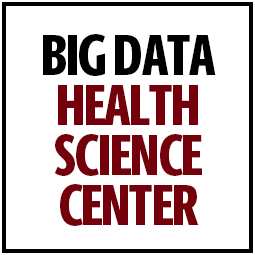
Learn More and Apply
The R25 Big Data Health Science Community Scholar (R25 c-Scholar) Program provides data science training and mentored, hands-on research experience to individuals from various community or governmental organizations
August 22, 2024 | Erin Bluvas, bluvase@sc.edu
When the USC Big Data Health Science Center (BDHSC) envisioned a community-scholar program to train practitioners in the use of data science in their health-related work, their goal was to make it a long-term initiative. Last fall, they enacted phase one of this effort by launching a one-year pilot program funded by $100,000 administrative supplement from the National Institutes of Health.
“This innovative [R25] program, along with other NIH-funded training programs, demonstrates the leadership and commitment of the University of South Carolina in developing a diverse workforce to improve the health and well-being of South Carolinians,” says Julius Fridriksson, USC’s Vice President for Research.
Following a competitive application process, four individuals were selected to join the inaugural cohort of Big Data Health Science Community Scholars. From regions across the state, these community members include an HIV-certified physician from a federal qualified health center, a SC Department of Public Health (formerly DHEC) low country region epidemiologist, the CEO of a community-based AIDS service organization, and an associate vice president of a nonprofit health care organization.
“Given the success and promise that we’ve seen from this program over the past year, the NIH has awarded us another $200,000 to continue and expand the program,” says Xiaoming Li, co-principal investigator for the center and a professor in the Arnold School’s Department of Health Promotion, Education, and Behavior. “Our hope is to then secure five-year funding for the community scholar program like we have for our Junior Faculty Fellow, Predoctoral Scholar, and Emerging Scholar programs, so we can expand this training throughout the state and beyond.”
Over the course of their one-year training, the community scholars have engaged in seminars and mentorship meetings to learn about topics such as data collection and analysis, visualization and interpretation, applications to public health and clinical practice, and social and ethical considerations. Participants discuss preassigned reading materials and complete homework assignments ranging from reflection papers to action plans, community event proposals and conference presentations.
“I’ve discovered a true passion for discovering the complexities of data and studying the future potential of AI as it relates to the work we do in the community,” says Carmen Julious, a social worker and CEO for PALSS, Inc. “The sense of community and the impact we’ve made together is inspiring.”
Though still in the midst of their program, participants have already begun applying what they’ve learned. Adelero Adebajo, an internal medicine physician with Eau Claire Cooperative Health recently analyzed more than 50,000 STI samples. Using her enhanced big data science knowledge, she was able to highlight some of the gaps in the screening process that led to policy change improvements.
“I used to think I knew data, but the program has exposed the gaps in my knowledge of the role of data science in health care delivery,” she says. “Fortunately, the program has helped me to start filling up these gaps through access to conferences, courses, journals, club meetings, and mentorship. My knowledge and perspectives have improved, (and) I have formed relationships and collaborations with other co-scholars from different parts of the community.”
Before the program wraps this fall, trainees will organize a community forum/town hall meeting to share research findings with local stakeholders. They have also participated in a panel presentation at the center’s 5th annual Big Data Health Science Conference, and will complete a report on their experience (e.g., program feedback, lessons learned, future opportunities).
“Not only has the program positively impacted my career and organization, but it has also provided an opportunity to connect with fellow professionals across the state, all dedicated to serving the citizens of South Carolina,” says Andrew Lynch, associate vice president for data analytics at HopeHealth.
“The Big Data Health Science Center is truly an asset to our state, and this program is an excellent example of the amazing things that can be accomplished when public health and the community connect,” adds Ashley Green, the regional acute disease epidemiologist for the Lowcountry. “We thank you and your colleagues for all that you have done to bridge gaps and strengthen South Carolina's academic, research and health care capacity.”
To achieve its mission to transform USC into a national and international leader in big data health science research, the Center has developed a full spectrum of training programs, including four NIH-funded programs and one internally-funded program to address the nationwide shortage of big data health science workforce.

The R25 Big Data Health Science Community Scholar (R25 c-Scholar) Program provides data science training and mentored, hands-on research experience to individuals from various community or governmental organizations

Launched in 2019 as of one eight high-impact projects, the USC Big Data Health Science Center serves as a campus-wide interdisciplinary enterprise that conducts cutting-edge research and discovery, offers professional development and academic training, and provides service to the community and industry.
New program trains community collaborators to conduct big data health science research
New training program preps underrepresented minority students for careers in health
data science
Big Data Health Science Center engages students through diversity, equity and inclusion
efforts
UofSC Big Data Health Science Center wins NIH award to launch big data fellowship
program